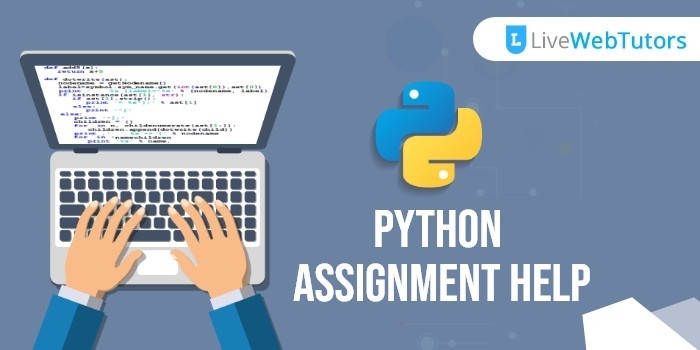
With the advancement of technology, artificial intelligence has become very common even in academic research. That is why cognitive analytics can play a significant role in research and studies. With the help of this analysis, you can take your research to another level.
This article shows the importance of cognitive analytics in academic research.
Cognitive analytics:
In cognitive analysis, you apply human-like intelligence in various tasks. In this, you bring together many intelligent technologies, such as machine learning, deep learning, artificial intelligence algorithms and semantics. This type of analytics aims to learn the data and identify hidden patterns from it by using human thought process. With the help of this analysis method, you can bring all the sources of data, such as images, text, video and audio into the reach of the analysis process so that you can further use it for business intelligence and decision making process. Cognitive analytics applies the human-like intelligence to the activities like getting the whole summary of a text instead of the individual words. Thus, with the help of this analysis, you can use the combination of many AI technologies. By applying these AI technologies, the application of this analysis becomes highly effective as you learn to interact with humans and data with time. A system of cognitive analysis looks through the whole data which is available in the knowledge base to identify the real-time solutions.
How it works:
Cognitive analytics highly depends on the neural network and deep learning. Process of deep learning is based on a neural network of deep learning, which comes from the architecture of neural networking. Human brain has a particular structure which impacts the neural network. The human brain is made of many neurons. All of these neurons are linked together with weighted connections. The neural network of deep learning is made of several layers of these neurons. Artificial learning happens when the weights in this network modify between the interconnections. There are three phases of deep learning in this case:
- Understanding human interactions and natural language
- Evaluating and generating evidence-based hypothesis
- Learning and adapting from the user responses and selections
For many students, it is hard to follow the pattern of this analysis. Therefore, most of them tend to get PhD dissertation help.
Importance in academic research:
Following are the points that show the importance of this analysis in academic research:
Collecting useful data:
Cognitive analytics can help you to collect useful data. For instance, a researcher might use this analysis to monitor the behaviour of his participants. In this way, he can find meaningful patterns and trends for his research. He will be able to easily draw a meaningful conclusion in his research and give a very rigorous analysis without spending much time and effort. You can also make useful predictions in your study as some parts of the cognitive analysis fall under predictive analysis.
Research:
With the help of advanced artificial intelligence tools, the research process has now become very easy. Cognitive analytics uses many AI technologies. All these technologies can help the researcher to do effective research for his study. In this way, you can save a lot of time and money by using this analysis method.
Best solutions:
Academic research is nothing without recommendations and solutions. With the help of this analysis, you can come up with many practical solutions for your main research issue. For instance, this analysis can be used in the medical industry to get the best solutions for patients who need treatments. There are many other examples of this analysis which people use in their lives, such as IBM’s Watson, Apple’s Siri and Microsoft’s Cortana. Many companies are also using this analysis to get some sources of unstructured data like social posts, text documents, emails, and images. In the future, this analysis can be used to find some real-time solutions to large amounts with diverse information. It can bring a significant shift in the traditional analysis process in academic research.
Business academic research:
Cognitive analysis can be used in academic research related to business. The researcher can suggest ways to grow business through cognitive initiatives. You can suggest ways to improve customer engagement which can improve the efficiency of the business at a huge pace and further enhance the business growth. With the help of better customer engagement, businesses can improve the customer service, user experience and enable the faster responses to the needs of market or customer. This analysis can help businesses to improve efficiency and productivity. It can also help to improve planning and decision-making. You can also find ways to improve security and compliance. With the help of this analysis, a business can reduce its costs and improve profits.
Social research:
With the help of this analysis, you can extract useful insights from the data related to social studies. This can further help in creating a personalized plan and services to understand the issues from critical perspectives.
Environmental research:
Cognitive analytics can help you understand the impact of human activities on the environment so that the planet can be protected for future generations. With the help of this analysis, you can do academic research that deals with basic environmental issues, such as energy, water, food availability and climate change. That is why; governments can present the sources of pollution effectively. It can help you to determine the issues and anomalies, which can further reduce the diseases, better control the ecosystem and track urbanization.
Other benefits:
There are some other benefits of cognitive analytics, such as:
- Using the full range of calculations for the distribution
- Considering the data outliers
- Reporting noise in the dataset
- Visualizing and analyzing the information and data to check complexity
- Organizing the data
- Reviewing the practical importance of academic research
- Examining the consistency in the data over a period of time
Conclusion:
The above article has shown the importance of cognitive analytics in the academic field. You can now use advanced methods and tools in your study and draw meaningful conclusion with minimum cost and effort.




![BCS AIF Exam Questions - Experts Are Here To Help You! [2022] BCS AIF Exam Questions - Experts Are Here To Help You! [2022]](https://i.ibb.co/YbnfY9f/8.jpg)






